Posted on 8/7/2018
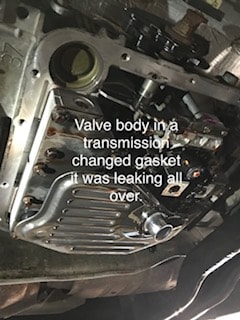
“Why do head gaskets leak?” and “Can you drive with a bad or leaking head gasket?” Those were questions that were asked of our Auto Mechanics this week. One of the main causes of a blown or damaged Head Gasket is extreme heat. If your cars’ engine is running hotter that it was made to do, it can warp the metal in your engine which can cause a blown head gasket. The gasket is not able to seal properly because of the warp. Here are some different causes that might allow your cars’ engine to overheat: Leak in the cooling system: if you have a leak in your radiator, water pump, hoses, had gasket or thermostat housing your engine isn’t going to be able to cool properly. If you can’t find the leak take the car to a mechanic. Coolant issues: even if you don’t have a leak in the coolant, if you put the wrong coolant, or the coolant-to-water ratio is off, you may have problems with your engine stayin ... read more
Posted on 8/1/2018
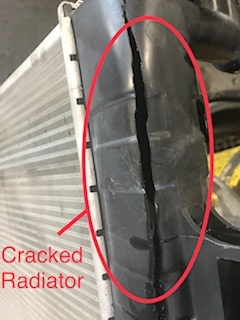
My Radiator looks cracked, what happened and how important is a radiator?? The radiator is what keeps your car’s engine cool, so don’t neglect it, warning signs are obvious. One of the first signs is that the water temp. gauge will start rising. A normal reading should be the needle will be under the center line. A low reading may mean the gauge is broken, or the thermostat is stuck open, get it checked. Low coolant level: one of the major reasons for overheating in your engine, check coolant at least once a month. NEVER CHECK WITH ENGINE RUNNING, LET EVERYTHING TOTALLY COOL DOWN. Clogged Radiator: dead insects, dirt, rocks, tar, loose debris. These items block the airflow and cause overheating. If you don’t see anything could be something internal…when everything is cool check coolant color, brown or discolored, or dirt floating. Heat exchange materials: this is usually only with older cars, newer cars are more efficient, so this usu ... read more
Posted on 7/25/2018

Did you know that if the air outside is 80 degrees, within 20 minutes the inside temperature reaches 109 degrees? If it is 90 degrees the temperature inside your vehicle reaches 119 degrees. Imagine what 100+ degrees can do to your pet or child. That type of heat can cause death, dehydration, heat exhaustion, heat stroke all or any of these things. So please be aware and don't leave them in the car even for a quick errand, it could be deadly. #HeatStroke #Dehydration #Pets #Children #Vehicle
Posted on 7/2/2018
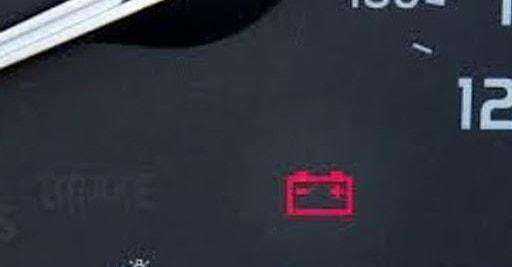
“Why is my battery light on?” The battery your car powers everything electrical in your car. Here is a list of what it charges: the engines’ control computer, the ignition system, the radio, headlights, etc., as you can see, the battery is a major force to your car’s operation. Eventually, the battery will go dead if not charged, vehicles have a built-in recharging system. Most cars’ have an alternator, also a voltage regulator(keeps battery charged & provides electricity to vehicle when the engine is running. Your car is dependent on the battery, so, all cars have a light on the dashboard warning you if your recharging system is failing. What this could mean is a failed alternator, a broken alternator belt, a bad battery connection (extreme corrosion) or a bad battery. Unless you bring your car in we have no way to know exactly what the problem is, we can’t diagnose over the phone. We can guess, but it is only a guess until we get your car in a ... read more
Posted on 6/29/2018

We will be closed on Wednesday July 4th, for any last minute work we will be open on Monday and Tuesday, the 2nd and the 3rd. Mention this blog(tell Ann sent you) and get $10.00 off. Have a Blessed and safe 4th
Posted on 6/21/2018
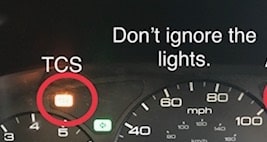
“My TCS Light is on with my Honda Odyssey, what does that mean?” “What is the TCS Light?” TCS stands for Traction Control System. When driving slower (up to 18 mph or less) the TCS helps you maintain control on loose or slippery surfaces. The TCS system sensors are connected to the ABS(Anti-lock Braking System) they monitor the speed of each of the wheels. When you see the Light on and it stays on, it could be a damaged or malfunctioning wheel speed sensors which can happen from corrosion(all the salt and gravel used in our harsh winters). Or one of the sensor wires are damaged. Call us at Ricks Auto Service here in Mishawaka IN. #TCS #Honda #HondaOdyssey #Brakes
Posted on 6/19/2018
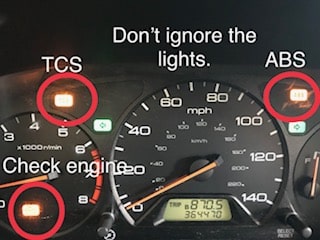
“What is the ABS light?” “What does it mean when my ABS light is on?” When your ABS light is on your regular brakes should work fine. What may not work is the antilock feature which prevents wheels from locking up during braking. If your car is made after 2012, it has stability control and traction control, unfortunately it relies on the same wheel-speed sensors at the anti-lock system. Here is what causes the light to come on: Your fuse may have been blown for that system. Your wheel-speed sensor is damaged or with all the grime in the streets it could be covered and needs to be cleaned. Broken wires between the sensors and the ABS controller. An ABS controller has stopped working. if your pump or valve is not giving the brake fluid pressure the right amount that could trigger the ABS sensor. You could be losing brake fluid. Come by Ricks Auto Service we can do a diagnostic check and figure out the problem is. #ABS #Maintenance #Brake
Posted on 6/13/2018
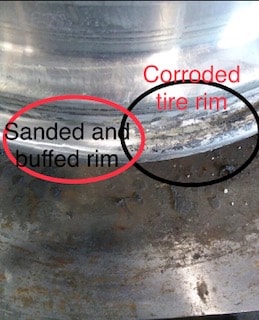
We see this type of corrosion regularly and it can cause a slow leak. You can see the comparison where our Technician cleaned and buffed the area and where the corrosion is. Abrasive elements may intrude between the tire and wheel at the bead seat area. Due to relative motion between the tire and wheel, this motion may cause abrasive particles to wear the wheel surface. As the wear continues, corrosive media from the environment may cause corrosion of the wheel bead seat, resulting in tire pressure loss. With the TPMS warning light, you can catch the problem before the tire becomes completely flat. #FlatTire #Flat #TPMS #Corrosion #Maintenance #Michiana #StJoeCounty
Posted on 6/11/2018
.jpg)
#POTHOLES: We live with them whether we like them or not! Here is a check you can do when you hear that sickening thunk after hitting one full force. (Blew a tire doing that, didn’t even see it was full of water) #TIRES: Since tires are the first to hit the hole, damage can happen like sidewall bulges, tread separation or flats. Don’t drive on a blown out tire it isn’t safe, and you may be able to patch the tire. #WHEELS: Sometimes you may hit the pothole at such an angel that the impact can bend chip or crack the rim where the metal meets the tire. (check out the Picture) #SUSPENSION: Your cars’ suspension is designed to absorb impacts providing you with a smooth ride. However, slamming against potholes can cause many different suspension problems. You may end of with an out of alignment(we can take care of that). If the car is doing any of the following give us a call: car pulls in on ... read more
Posted on 6/7/2018
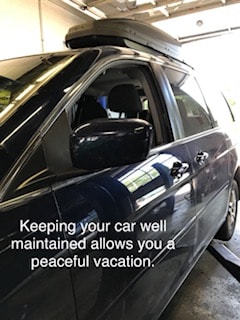
Ignoring your cars’ maintenance needs is not good for your car. Your car needs it’s regular checkups, when you don’t it usually results in expensive repairs down the road. Here are some benefits that you and your car can experience with regular maintenance: Your vehicle will run more efficiently—When you bring your car in for it’s regular maintenance it gives our trained mechanics an opportunity to see where problems might be starting and repair those parts before they deteriorate. Improves your Fuel Efficiency: With the rise in gas prices this is an important priority for most drivers. When you allow your fuel system to become dirty it clogs air filters that can reduce your car’s fuel-efficiency. Keep Warranty Coverage: There are certain criteria’s that the manufacture needs documented to allow for the warranty claim. Some have been denied because of not having routine maintenance. More money when you sell: When trading your car the buyer ... read more